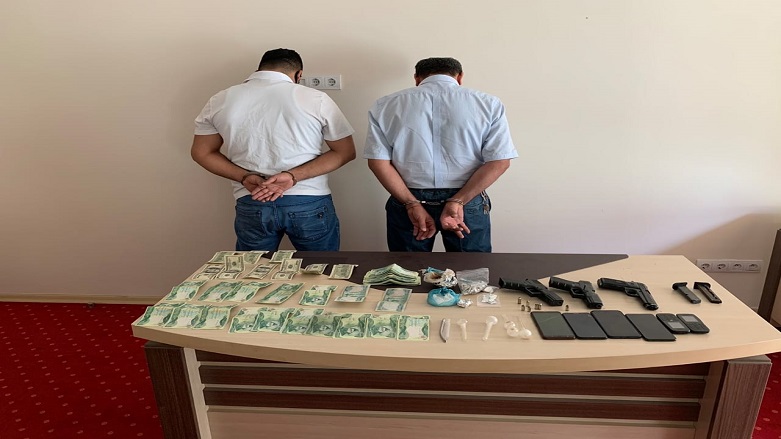Security forces in Kurdistan's Erbil arrest two suspected drug dealers

ERBIL (Kurdistan 24) – Erbil’s Anti-Narcotics General Directorate on Tuesday announced the arrest of two individuals in Erbil, allegedly in possession of banned narcotic substances and counterfeit currency.
The directorate said in a statement that its forces that, along with arresting the two suspects, "they seized 116 grams of crystal, 550,000 counterfeit Iraqi dinars, 900 counterfeit US dollars, three pistols, and six mobile phones" in their possession.

It should be noted that there is often confusion about the term "crystal" since it is commonly used as the local name for two different highly-addictive drugs. One is methamphetamine, known in much of the world as crystal meth, but it can also refer to high-purity street-level heroin, sometimes called kerack.
The statement did not reveal the identity of the defendants or further details about the accusations they might face.
The sale and consumption of any narcotics or controlled medications are strictly forbidden in the Kurdistan Region and Iraq.
In late 2019, the KRG announced that security forces in the autonomous region had arrested 1,702 individuals that had been charged with trafficking or possession of illegal drugs.
Read More: Kurdistan Region arrested over 1,700 for drug-related crimes in 2019
Furthermore, The Kurdistan Regional Government (KRG) on June 27, announced the arrest of 586 suspected drug dealers and users in the first half of 2020 to mark the International Day Against Drug Abuse and Illicit Trafficking, observed annually on June 26.
Read More: Kurdistan announces nearly 600 drug arrests in first half of 2020; over 350 kg seized
Kurdish and Iraqi authorities often intercept shipments of drugs passing through Iraq and the Kurdistan Region, mainly in the provinces of Basra, Diyala, Erbil, and Sulaimani.
Most of it is smuggled into the country through its porous border with Iran, on its way to Turkey, Syria, and ultimately Europe and North America.
Editing by Khrush Najari
